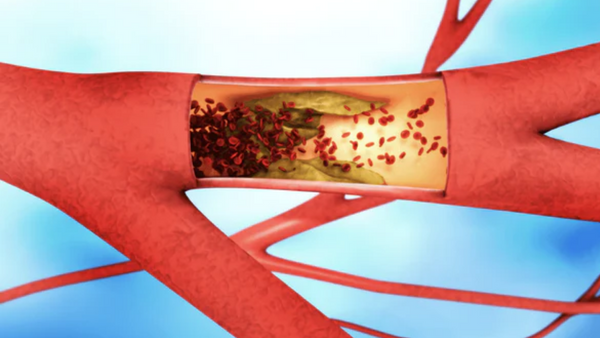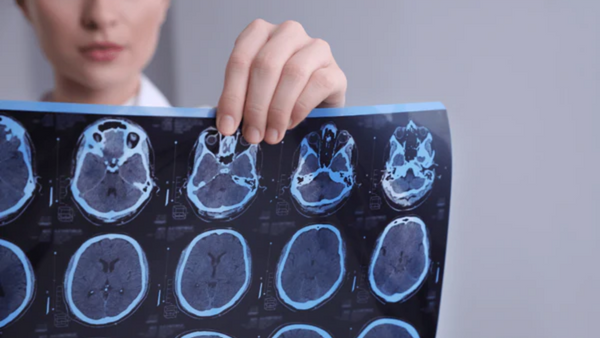Arteriosclerosis (also called atherosclerosis) causes hardening and thickening of blood vessels. Colloquially, this is also referred to as hardening of the arteries.
Deposits narrow the vessels that supply the organs with oxygen-rich blood. This causes the blood vessels to narrow and a blood clot can impede or even completely stop the blood flow. This means that vital organs are no longer supplied with oxygen, which can cause a heart attack or stroke. In the worst case, this can have fatal consequences.
Anticoagulants are often used to treat arteriosclerosis. These reduce the risk of blood clots. Cholesterol-lowering drugs are also often prescribed, as high cholesterol levels are considered a risk factor for arteriosclerosis.
Diet also plays an important role in arteriosclerosis. Diet-related problems such as obesity, high blood pressure and diabetes are the greatest risk factors for arteriosclerosis. Treating these can counteract the progression of arteriosclerosis.
The diet also provides many important nutrients that play a role in arteriosclerosis.
Micronutrients can also support the treatment of arteriosclerosis.
Omega-3 fatty acids
Omega-3 fatty acids have an anti-inflammatory effect. Since inflammation can promote arteriosclerosis, it makes sense to keep inflammation in check.
Studies suggest that a good supply of omega-3 fatty acids can actually reduce the risk of heart attack. [1]
magnesium
Magnesium is very important for nerve and muscle function. In addition, a good supply of magnesium can help regulate blood pressure. [2] High blood pressure damages the blood vessels and can promote arteriosclerosis.
Vitamin K2
A good supply of vitamin K2 is very important for vascular health. It also ensures that calcium is absorbed from the blood into the bones. [3] Too high a calcium level can further damage the vessels.
OPC
High LDL cholesterol is particularly problematic when it oxidizes. Then it promotes the formation of plaques. Oligomeric proanthocyanidins (OPC) are extracted from grape seeds and are very effective antioxidants. Studies indicate that taking OPC could reduce the oxidation of LDL. [4]
Zinc, selenium, vitamin C and vitamin E
In addition to OPC, there are other important antioxidants that are even essential nutrients, which means that we have to consume them through food.
These primarily include zinc , selenium , vitamin C and vitamin E.
B vitamins
B vitamins are needed to break down the metabolic product homocysteine. Vitamin B6, folic acid (vitamin B9) and vitamin B12 are particularly important here. If one or more of these vitamins are lacking, the homocysteine level rises. A high homocysteine level damages the blood vessels and increases the risk of arteriosclerosis.
In the case of arteriosclerosis, it is therefore important to ensure a good supply of B vitamins.
Coenzyme Q10
Coenzyme Q10 plays a central role in energy production. Coenzyme Q10 is also an important antioxidant. Coenzyme Q10 is also important for heart health and can improve the heart's ability to contract. [5]
Coenzyme Q10 is also useful when taking statins (so-called cholesterol-lowering drugs) because coenzyme Q10 can reduce the side effects.
Conclusion: Deficiencies promote arteriosclerosis
Deficiencies in certain nutrients can promote arteriosclerosis. People with arteriosclerosis or at increased risk should ensure they have a good supply of these nutrients.
[1] https://jamanetwork.com/journals/jamainternalmedicine/fullarticle/2530286
[2] https://www.ncbi.nlm.nih.gov/pmc/articles/PMC3683817/
[3] https://pubmed.ncbi.nlm.nih.gov/18722618/


















